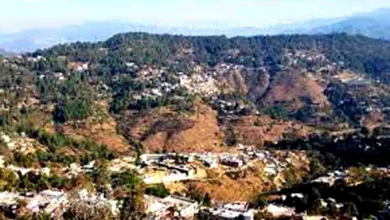The mountains talk but are we listening?

THE OTHER SIDE
As in the past years, the International Mountain Day was observed this Friday. Some interesting discussions and some activities to fulfil formalities were held on the occasion as usual.
According to the United Nations, mountains are home to about 15 per cent of the world’s population and host about half of the world’s biodiversity hotspots. They provide freshwater for everyday life to half of humanity. Their conservation is a key factor for sustainable development and is part of goal 15 of the Sustainable Development Goals. The UN also acknowledges that mountains are under threat from climate change and over exploitation. As the global climate continues to warm, mountain people — some of the world’s poorest — face even greater struggles to survive. The rising temperatures also mean that mountain glaciers are melting at unprecedented rates, affecting freshwater supplies downstream for millions of people. The theme of this year’s International Mountain Day was mountain biodiversity. In addition to the usual culprits including climate change, commercial mining and unsustainable farming, land use and land cover change along with the natural disasters continue to exacerbate biodiversity loss. The UN further states that ecosystem degradation, loss of livelihoods and migration in mountains can lead to the abandonment of cultural practices and ancient traditions that have sustained biodiversity for generations. The sustainable management of mountain biodiversity has been increasingly recognised as a global priority.
Now, coming to Uttarakhand- the factors affecting the situation in this Himalayan state can be classified broadly into culture, economy, environment and the biggest factor influencing all factors- politics. When it comes to culture- two examples will suffice to show how changes are affecting the state and its people. Earlier, it was a taboo to even urinate in a mountain stream, doing so in a river was unimaginable. Now, with the government having encouraged unplanned constructions- it is common for sewage and even municipal garbage to end up in rivers. There was also an old Garhwali saying which basically meant that if you want to destroy your family- settle on the banks of a river. That is not the case anymore. It was the culture of the mountains which had sustained the society and even helped it thrive amidst hardships for ages but this aspect is being influenced negatively. The economy and environment are also interconnected. While some measures have been taken by the government to improve the local economy, successive governments have failed to do justice to the environmental aspect. That brings us to the most influential factor- politics. Despite numerous discussions and plans, successive governments have failed to define what sustainable development actually means for this mountain state. When the definition itself is dubious, the execution cannot be effective or even desirable. The plan to expand the Dehradun airport by denotifying the state’s sole elephant reserve is the latest example of confused priorities. The Central government plans to build an expressway between Delhi and Dehradun which will enable one to cover the distance between these two cities by road in less than three hours. Considering this and the existing railway and air links, one wonders whether Dehradun really needs an international airport.
It is not as if the government is not doing anything good. Some good measures have been taken and some are planned. However, the skewed priorities and impractical plans being executed dilute the benefit of the good works. As another International Mountain Day was held with speeches and discussions, the necessity to do the needful appeared all the more urgent. The mountains talk. Sometimes they talk loudly like they did in 2013 and in every monsoon and at other times, they talk subtly. But, are we really listening?
Saturday, 12 December 2020 | Paritosh Kimothi | Dehradun






